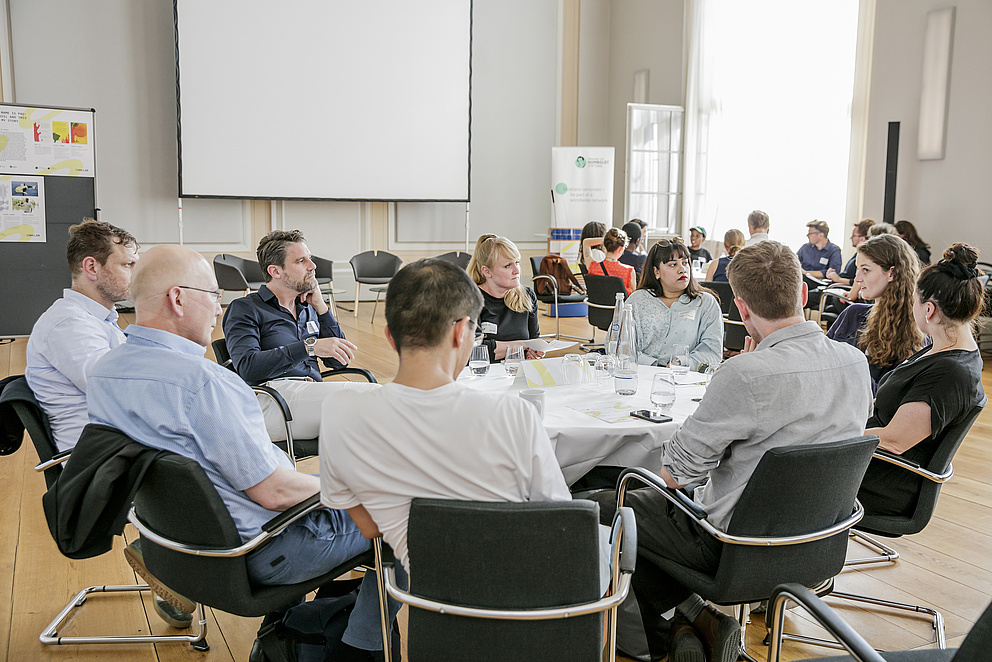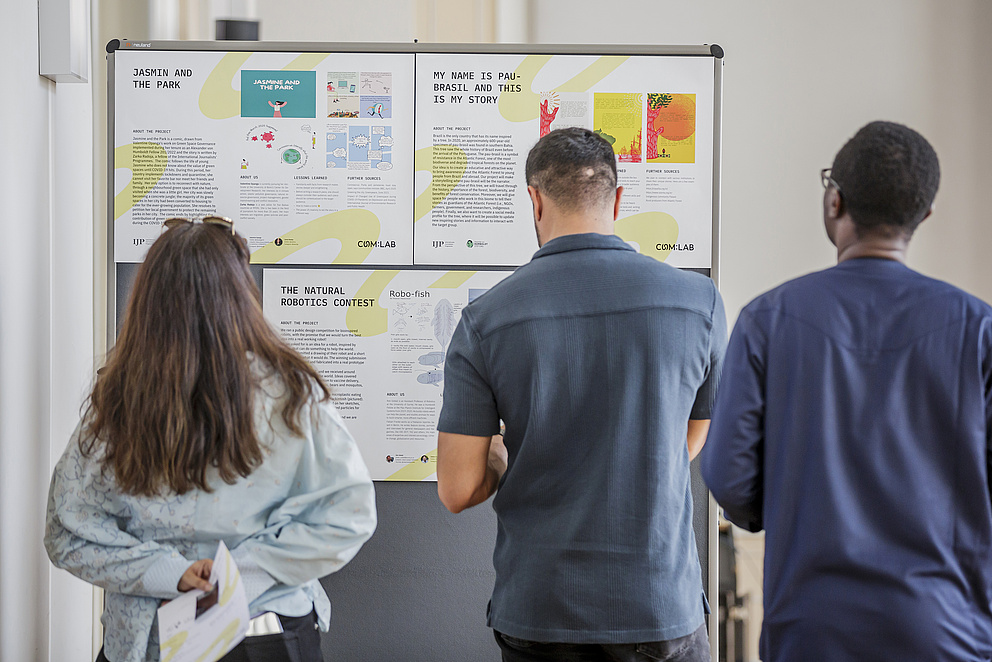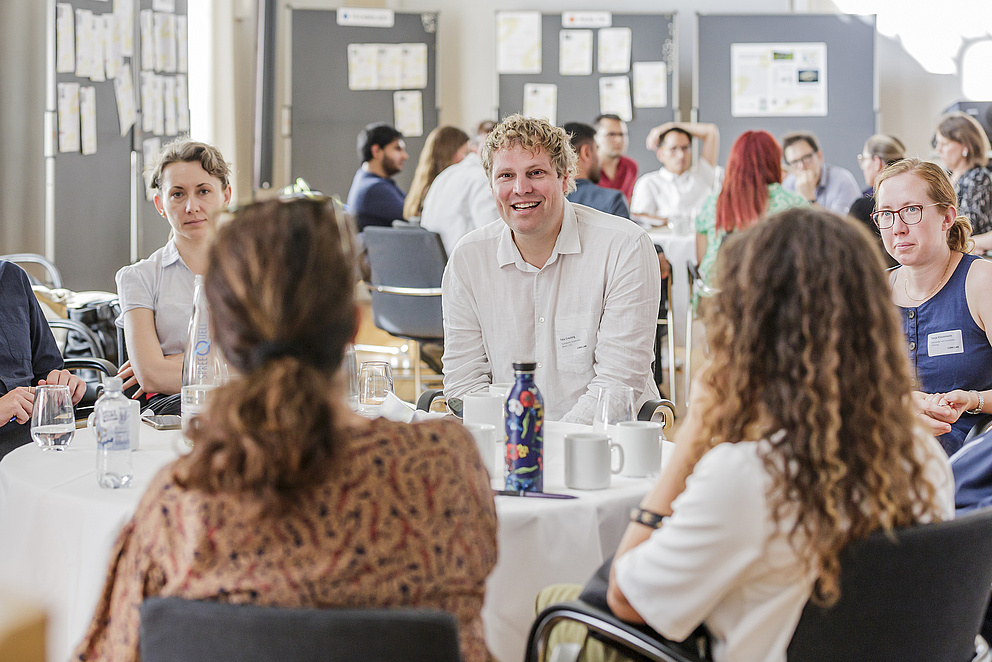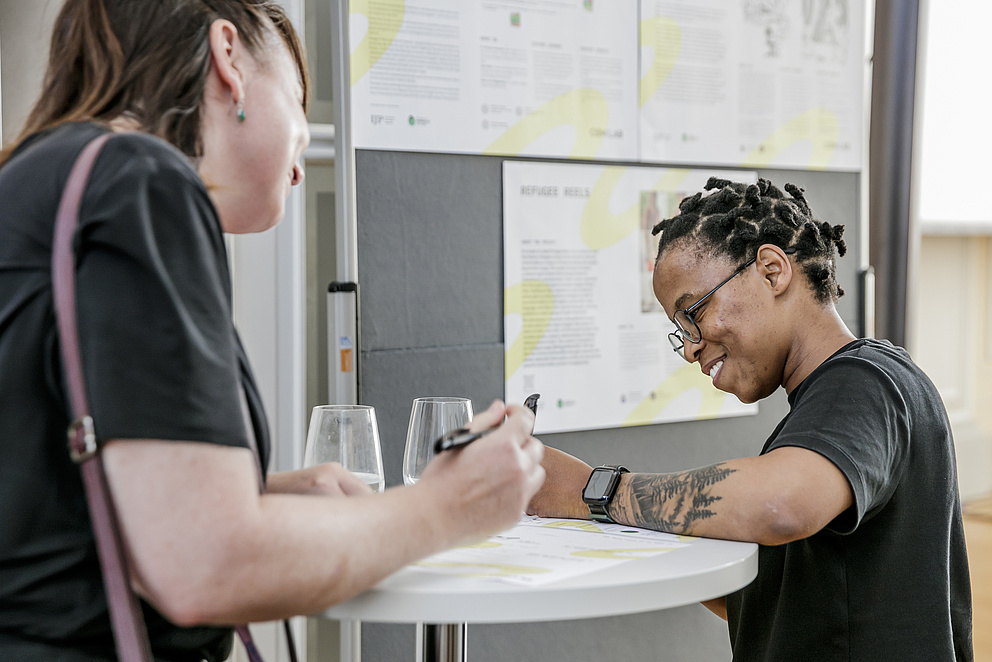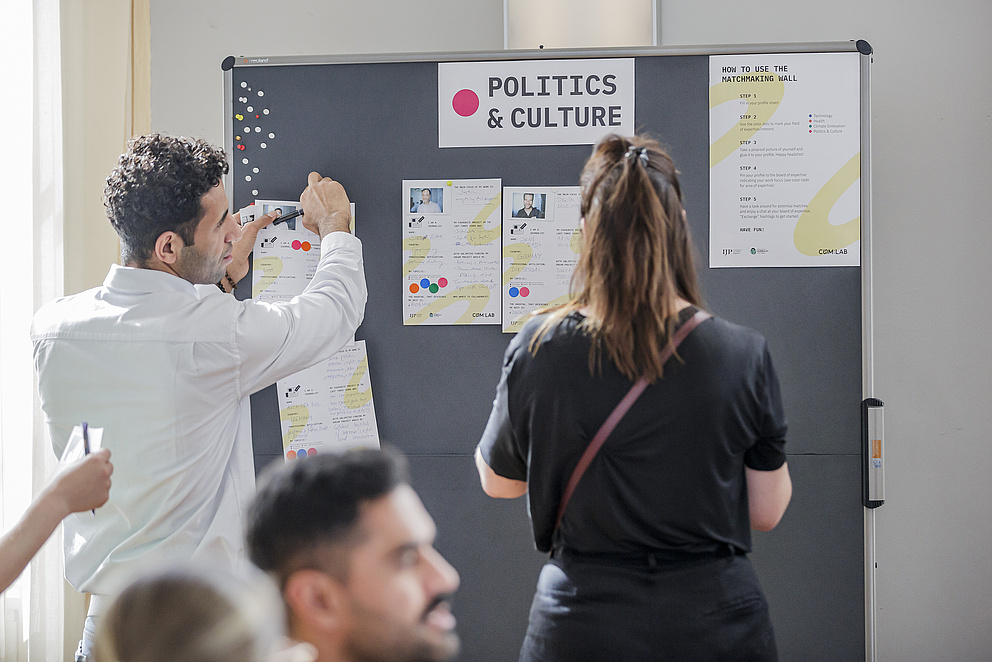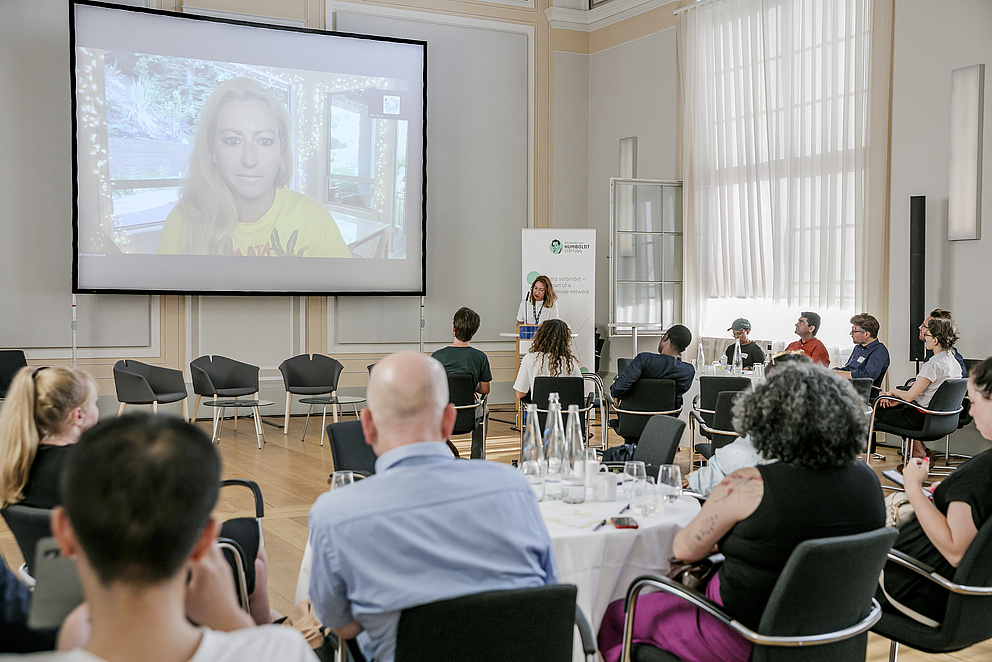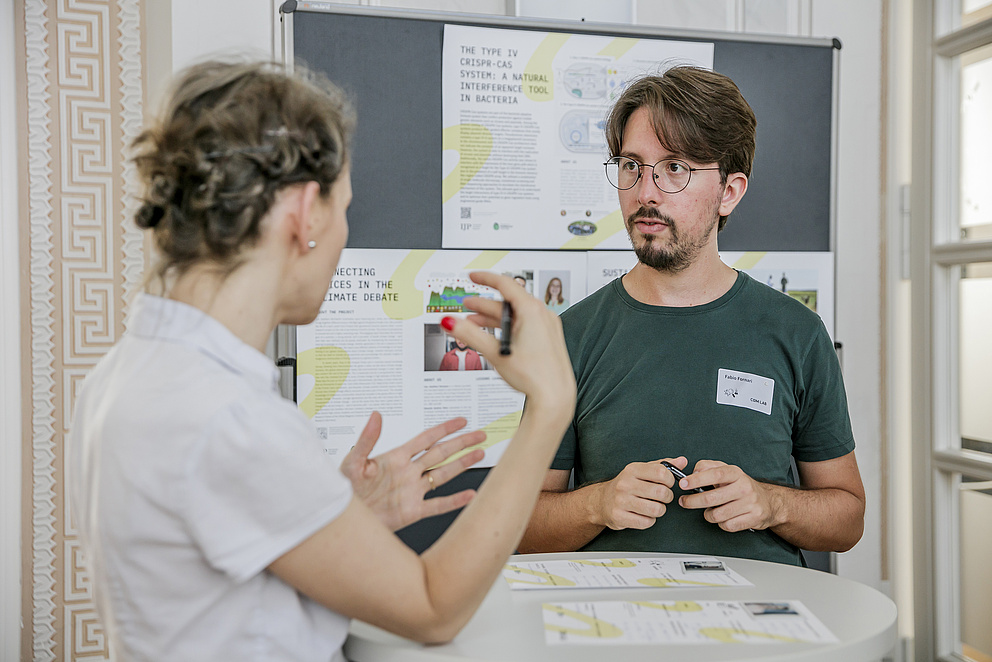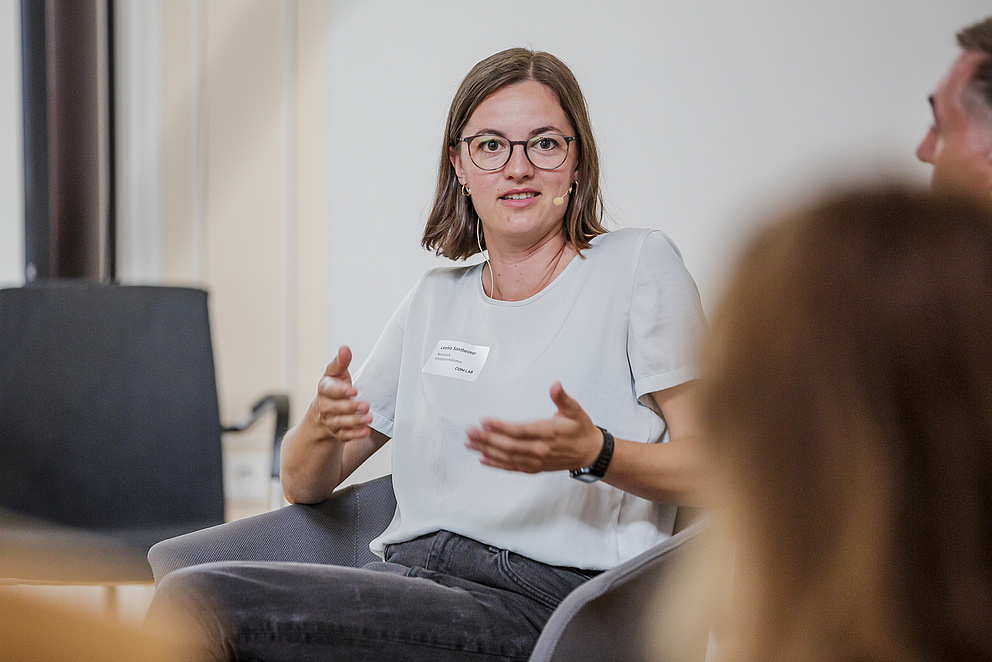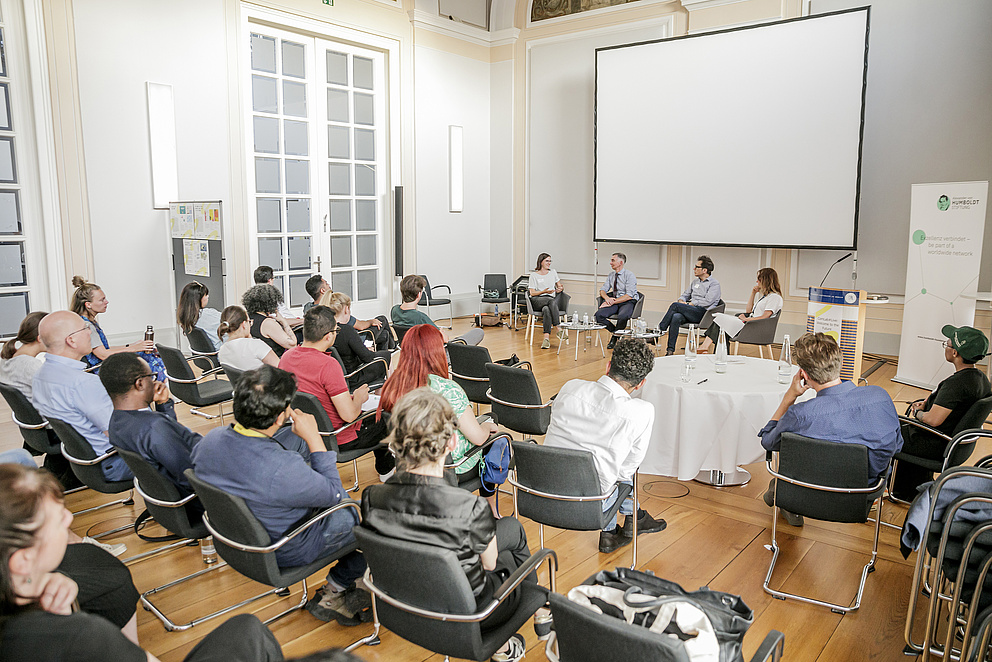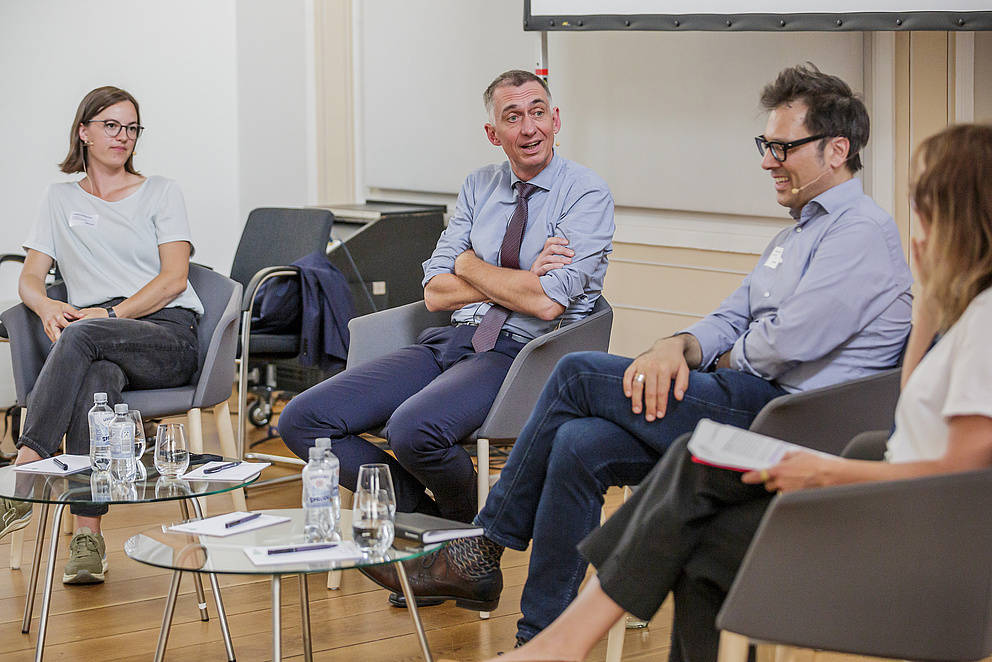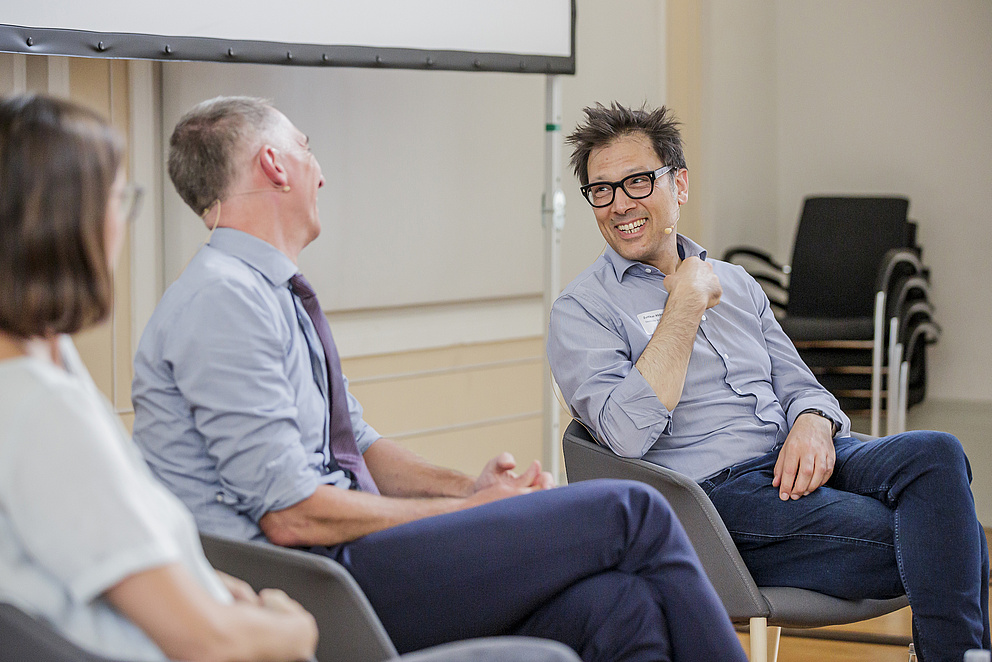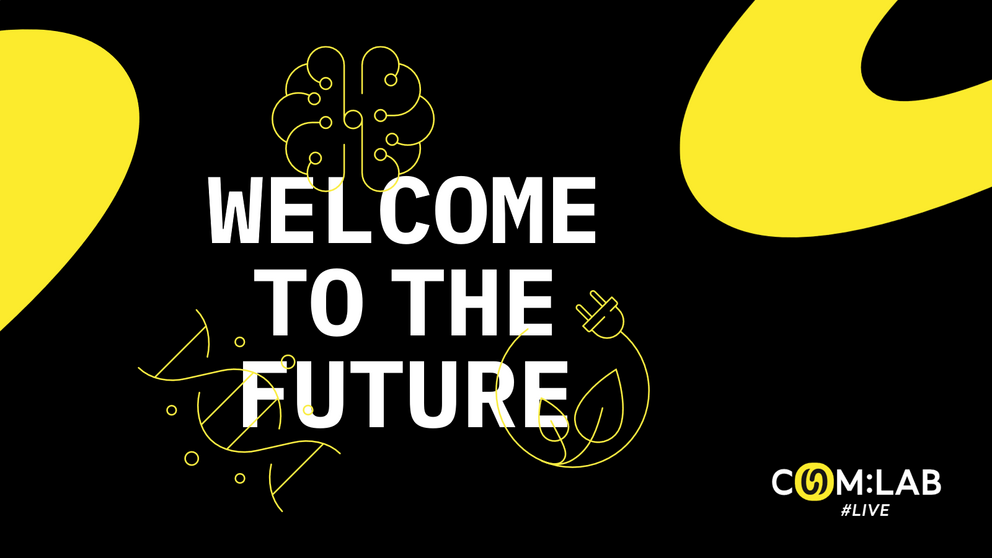

Contact
Press, Communications and Marketing
Tel.: +49 228 833-144
Fax: +49 228 833-441
presse[at]avh.de
Synthetic human embryos, micro power plants in your own basement, space travel, artificial intelligence that organises people’s everyday lives and writes texts: welcome to the future. It has already arrived!
After three years of digital exchange, researchers and journalists of the Communication Lab met for the first time in Berlin to share ideas on the three future topics of artificial intelligence, climate innovations and biotechnology. Participants from over 20 countries and disciplines discussed trends and challenges in communication. Which aspects of climate research and innovation are being neglected globally? What are the major bioethical questions in the face of the rapid developments in stem cell research and synthetic biology? And how is artificial intelligence changing our understanding of truth, authorship and authenticity?
At three networking tables, the programme participants got together with international experts, amongst them representatives of the AI & Society Lab at the Humboldt Institute for Internet and Society, the Berlin Institute of Health at Charité, the Climate Change Center Berlin-Brandenburg, Deutsche Welle, the Einstein Center Digital Future, Humboldt-Universität zu Berlin, the National University of Sciences and Technology (NUST) Islamabad, SPIEGEL, taz, the University of Bonn and the University of Potsdam.
The flash talk on “Mental Time Travel” was held by the game designer and internationally renowned futurist, Jane McGonigal (Institute for the Future, California, USA). Focussing on the global challenges facing society, she encouraged the participants to experiment with new ways of storytelling in which the audience becomes the main protagonist. The future, McGonigal said, must be something people can experience and comprehend emotionally. She demonstrated this technique in simulations in which possible scenarios, such as a world made inhospitable by environmental disasters, are played out, making participants resilient to future crises. And not just that: The simulations inspire people here and now to find solutions for tomorrow.
Public debate: “Activism in science and the media?”
In the evening after the networking rounds, the Communication Lab held a public debate. The panel, featuring Ralf Beste (Head of the Department of Culture and Society at the Federal Foreign Office), Leonie Sontheimer (freelance journalist, co-founder of the Climate Journalism Network) and Zulfikar Abbany (senior science editor at Deutsche Welle), discussed the influence of politics in research and science, moderated by Stephanie Siewert (Alexander von Humboldt Foundation). Where should we draw the line between activism and journalism or research? Or is the image of “objective research” and “detached journalism” completely outdated? What is the role of science and the media at a time when public debates are becoming increasingly radicalised and hijacked by populist movements?
Particularly if one has a personal, emotional connection to a topic, the balancing act between the positions can prove fertile, but equally difficult. Leonie Sontheimer pointed out that this also relates to issues of social responsibility. She sees herself as an engaged climate journalist. “With the activities of the Climate Journalism Network in Germany, we want to contribute to a simple goal: the preservation of life on this planet. If people think this is political, then I would say journalism and science have to be political.” But what is defined as political is very subjective. Today, according to Zulfikar Abbany, journalists are already called partisan if they hold up to democracy and human rights on public-service broadcasting. But he also recognised the flip side: “Actvism today is so bound up with identity politics. People now define themselves via activism as some kind of professional skill. But it is not. Journalism is a profession and needs to be protected.”
The panellists also discussed how to mark up bias in research and journalism without losing credibility. Ralf Beste of the Federal Foreign Office emphasised that transparency was an important criterion for trust in science communication, especially in the light of global disinformation campaigns. Fear of being misunderstood should not lead to resignation. “The undisputed knowledge that there is no objectivity should not be an excuse for not trying hard, being sceptical, scrupulous, curious and reflective, and trying again.” He also pointed out that we need to deal with the cultural differences with regard to accepting scientific findings. “We need to expand the discussion with the dimension of culture and democracy. The cultural preferences can be very different when it comes to scientific research. People have the same information available but they take different roads and come to different conclusions. That is also relevant between nations. And this is where diplomacy comes in,” said Ralf Beste.
We can only give partial accounts of reality. We have to own up to the incompleteness of our description. But researchers and journalists can also correct discourses. They can go to the people and research what has been neglected.
Everyone agreed that both research results and reporting can only ever represent partial accounts of reality. At the same time, science offers an important corrective to social inequality, as the audience stressed. Research and journalism can be important tools for exploring grievances which they can then address together – even outside of activist paths. Because from politically sensitive approaches to activism the spectrum is broad.
Communication Lab
Twice a year, ten Humboldt Foundation fellows meet ten journalists from all over the world – fellows of the International Journalists’ Programmes. During a three- to four-day workshop, they form science-media tandems to work on a journalistic project. Highly qualified mentors supervise the process. The focus is on learning from one another. What do they expect from one another? How does trusting cooperation work? And what constitutes good research communication? You will find additional information here.
The Communication Lab is being financed by Germany’s Federal Foreign Office.

